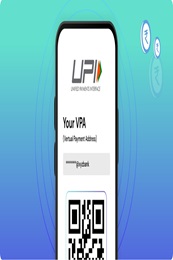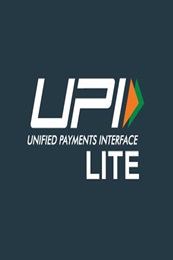A Quick Guide to Cash Recycler Machine (CRM)
April 15, 2025

In recent years, banks in India have been rapidly adopting innovative financial technologies to enhance customer experience. One such development is the introduction of Cash Recycler Machines (CRMs)—a modernized version of ATMs that allow both cash deposits and withdrawals. Unlike traditional ATMs that only dispense cash, CRMs can accept, verify, and recycle cash deposits in real time. Let’s explore how these machines work, their benefits, and why they are becoming a popular choice among banks.
What is a Cash Recycler Machine?
A Cash Recycler Machine is an advanced self-service banking device that allows both cash deposit and withdrawal. It also authenticates currency notes, helping banks detect counterfeit money and manage cash more efficiently.
How Does a Cash Recycler Machine Work?
A Cash Recycler Machine functions similarly to an ATM but with additional features. Here’s a step-by-step breakdown of its operation:
- Cash Withdrawal: You can withdraw cash just like at a regular ATM by inserting your debit card and entering your PIN.
- Cash Deposit: Customers can deposit cash into their account using a CRM. The machine counts, verifies, and processes the currency notes before crediting the amount to the customer’s account.
- Denomination Display: When you deposit cash, the CRM displays the denomination-wise breakdown and total amount. You need to confirm the details before proceeding.
- Real-time Account Update: The deposited amount reflects in the bank account instantly, ensuring faster transactions.
- Other Banking Services: In addition to deposits and withdrawals, CRMs allow users to change their PIN, check account balances, and print mini statements.
Key Features of Cash Recycler Machines
- Dual Functionality: Unlike ATMs, CRMs facilitate both cash deposits and withdrawals.
- Denomination Recognition: The machine counts and verifies notes before processing deposits.
- Real-Time Transactions: Deposits reflect immediately in the user’s account.
- Note Authentication: CRMs detect counterfeit, torn, or damaged notes and reject them.
- Multi-User Accessibility: Customers can deposit cash into their own accounts or into a beneficiary’s account (within the same bank).
- Deposit Limits: Cash deposit limits vary based on the method of deposit (debit card or account number entry).
How to Use a Cash Recycler Machine?
To deposit cash using a CRM, follow these steps:
- Visit your bank’s CRM and insert your debit card or enter your account number manually.
- Choose the Cash Deposit option.
- Place the cash in the designated deposit slot.
- The machine will scan, count, and verify the currency notes.
- Confirm the denomination breakdown and total amount displayed.
- Upon confirmation, the cash is credited to your account immediately.
- Collect the transaction receipt for your records.
If you’re using Ujjivan’s CRM, click here to get a comprehensive idea.
Why are Banks Adopting Cash Recycler Machines?
- Cost Efficiency: CRMs reduce operational costs for banks by minimizing cash handling at branches.
- Enhanced Customer Convenience: Customers can deposit and withdraw cash 24/7 without visiting a bank branch.
- Improved Cash Management: Recyclers redistribute deposited cash for withdrawals, reducing ATM cash refilling frequency.
- Fraud Prevention: CRMs detect fake notes, reducing fraudulent deposits.
- Faster Transactions: Real-time deposits and withdrawals improve banking efficiency.
Final Thoughts
Cash Recycler Machines are transforming the banking landscape in India by offering seamless and real-time cash transactions. With the ability to deposit, withdraw, authenticate, and manage funds efficiently, these machines enhance customer experience and streamline banking operations. As banks continue expanding their CRM networks, customers can expect greater accessibility and convenience in handling cash transactions.
Enjoy easy banking with Ujjivan Small Finance Bank. Save more with our high-interest Savings Account and Deposit products. Need cash for your business or personal needs? Apply for MSME Loans or Micro Loans with us – we offer competitive rates and quick disbursal. We also offer vehicle loans and home loans tailored for your unique requirements. Experience a smooth banking journey with Ujjivan SFB!
FAQs
1. What is the difference between a cash recycler machine and an ATM?
A cash recycler machine allows both cash withdrawals and deposits, while an ATM only dispenses cash.
2. Can I deposit money in a cash recycler without using a debit card?
Yes, you can deposit cash by manually entering your bank account number, but the deposit limit is usually lower.
3. Do cash recyclers accept all currency denominations?
Most machines accept ₹100, ₹500, and ₹2000 notes, but they may reject torn, taped, or mutilated notes.
4. Can I deposit cash in a CRM of a different bank?
No, you can only deposit money in the CRM of the bank where you hold an account.
5. How soon does a cash deposit reflect in my account?
Deposits are processed in real time and reflect in your account immediately.
6. What happens if I deposit counterfeit or damaged notes?
The CRM will reject counterfeit or damaged notes and not credit them to your account.
7. Can I use a CRM to deposit money into someone else’s account?
Yes, if the recipient has an account with the same bank that operates the CRM.
8. Do all bank branches have cash recycler machines?
No, but many banks, especially public sector and small finance banks, are expanding their CRM installations for better customer service.
Latest Blogs

Telangana Housing Board & KPHB Colony: A Guide to Affordable Urban Housing in Hyderabad
March 14, 2025
As Telangana continues its rapid urbanisation journey, two key housing entities—Telangana Housing Board (THB) and Kukatpally Housing Board Colony (KPHB)—have played critical roles in shaping the state's real estate ecosystem.

Does Checking CIBIL Score Frequently Lower Your Credit Points?
April 07, 2025
Imagine you're planning to apply for a home loan, a credit card, or even a car loan. Naturally, you want to ensure your CIBIL score is in good shape before proceeding.

Explained: Can NRIs Buy an Agricultural Land in India?
April 03, 2025
Real estate investment is often a top priority for Non-Resident Indians (NRIs) looking to retain strong financial ties to India.

How to Improve Your CIBIL Score from 600 to 750: A Step-by-Step Guide
April 02, 2025
Your CIBIL score is like your financial reputation—banks check it before approving loans or credit cards. If your score is hovering around 600, you might face difficulties in securing credit or may get loans with higher interest rates.

What Happens When You Leave Your Savings Account Unused?
April 01, 2025
Imagine waking up one day to find that your hard-earned money is locked away and inaccessible. Sounds stressful, right? This is precisely what happens when you leave your Savings Account inactive for too long.





